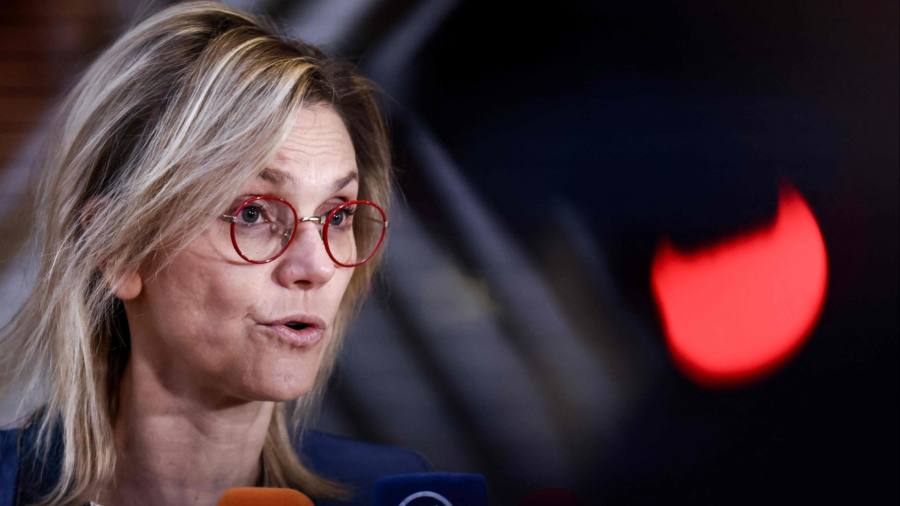
EU energy ministers must gather for another emergency meeting next month after several member states threatened to block wider energy crisis measures unless Brussels revises a plan to cap gas prices that ministers have criticised as ineffectual.
The Czech Republic, which holds the rotating EU presidency, has called a council meeting for December 13 to push through plans for joint gas purchasing and emergency sharing of gas supplies before Christmas, according to two people briefed on discussions at an emergency meeting of energy ministers in Brussels on Thursday.
The decision was made after a group of EU countries, including Belgium and Spain, said they would veto all of the proposals unless a cap on the price of gas could be agreed. The group is big enough to create a blocking minority under EU voting rules.
An EU diplomat briefed on Thursday’s discussions said ministers had reached agreement on the broader set of energy proposals, but added that it could not be approved formally “until everything is agreed”. The aim of the additional meeting is try and reach agreement on the mechanism for a gas price cap before a summit of European leaders on December 15, although it is not yet clear how this will be achieved.
Discussions over how and whether to introduce a limit on gas prices has become increasingly heated in recent weeks, with divisions emerging between countries that want to put a strict limit on all wholesale gas transactions and others, such as Germany and the Netherlands, which have said this threatens the security of gas supplies arriving to the bloc.
The European Commission on Tuesday proposed a limit on gas prices of €275 a megawatt hour, but the plan was criticised by ministers and analysts who said it would not have applied even when prices hit all-time highs in August. Wholesale gas prices rose to record highs above €300/MWh — the equivalent of more than $500 a barrel in oil terms — over the summer after Russia cut supplies through its largest route to western Europe, the Nord Stream 1 line to Germany.
As the winter gets colder, EU capitals fear using up gas that has been stockpiled partly with the intention of having a buffer next year when supplies from Russia could be completely cut off.
Agnès Pannier-Runacher, France’s energy minister, said on arrival at Thursday’s meeting that the European energy market needs “structural” reform if EU industry is to survive the current crisis, arguing that Brussels’ attempt to cap gas prices is “not sufficient”.
Ministers fear a mass deindustrialisation in Europe as companies struggle to meet high energy bills compared with the more favourable prices in the US, which has recently announced a huge package of subsidies.
Pannier-Runacher said the commission’s proposal was “certainly not a structural reform nor a response to the high gas price that the European industry faces and which endangers our economies. It is not a sufficient text”.
Anna Moskwa, Poland’s minister for climate and environment, described it as “a kind of joke” and said discussions on other measures to ease the energy prices should be put off until a cap had been agreed. “It is winter. We need to discuss the gas price cap,” she said on Thursday.
The cap would only be triggered if prices for month-ahead contracts on the benchmark Dutch TTF futures market exceeded that level for two consecutive weeks and if the price was €58 higher than that of liquefied natural gas for 10 consecutive days.
Additional reporting by Leila Abboud